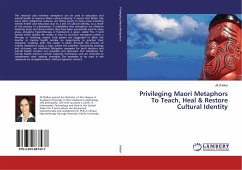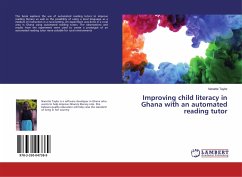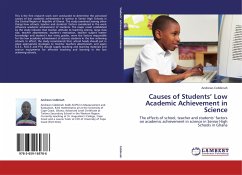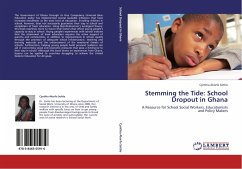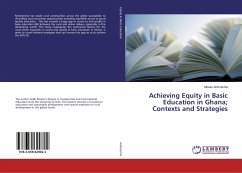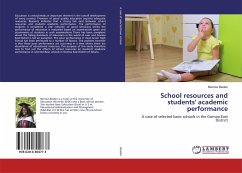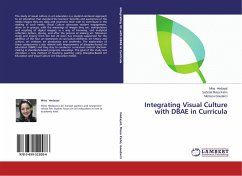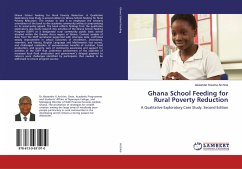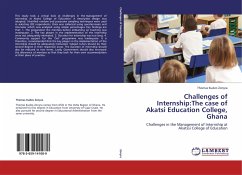
Integrating Indigenous Technology into Science Teaching in Ghana
Versandkostenfrei!
Versandfertig in 6-10 Tagen
55,99 €
inkl. MwSt.

PAYBACK Punkte
28 °P sammeln!
Science teaching in Ghana has a number of challenges among these is the lack of equipment and materials. Stake holders hold the view that science can only be taught in the classroom or well-equipped laboratory. But at the basic level science can be taught using the environment. Science teaching should be socially relevant and must be taught in the context of the environment of the learner. In Ghanaian communities, there are a lot of indigenous practices that are science laden which is unknown to the learners. Whiles the science curriculum in Ghana for the basic level prescribes that teaching o...
Science teaching in Ghana has a number of challenges among these is the lack of equipment and materials. Stake holders hold the view that science can only be taught in the classroom or well-equipped laboratory. But at the basic level science can be taught using the environment. Science teaching should be socially relevant and must be taught in the context of the environment of the learner. In Ghanaian communities, there are a lot of indigenous practices that are science laden which is unknown to the learners. Whiles the science curriculum in Ghana for the basic level prescribes that teaching of science must be based on the cultural practices,for meaningful learning to occur, it does not show how this integration should be done. Teaching science based on the prior knowledge of the learner from the indigenous practices has the efficacy of promoting better understanding of science concepts. This book is meant to show how the stages of production of a popular ready-to-eat food known as "gari" processed from cassava,can be used to teach some basic concepts such as fermentation, mixtures, heat transfer and many others in an integrated way. The book is worth reading by science educators.



